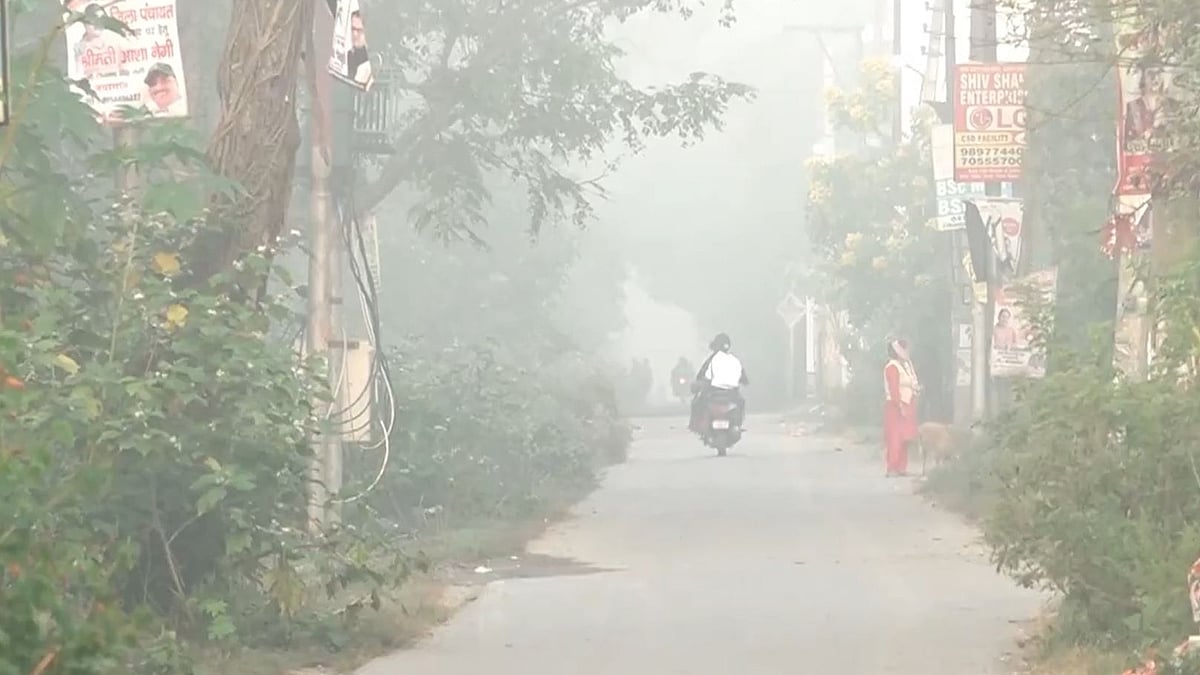Uttarakhand Records Remarkable Improvement In Air Quality During Diwali 2025
According to official data recorded on October 20, 2025, the AQI in Dehradun stood at 128, in Rishikesh at 54, in Tehri at 66, in Kashipur at 168, in Roorkee at 190, in Haldwani at 198, and in Nainital at 111. In contrast, during Diwali 2024, several cities had reported poor air quality, with Dehradun and Kashipur both recording an AQI of 269, and Rishikesh 175.

Dehradun: Uttarakhand recorded a significant improvement in air quality this Diwali, with cleaner air across major cities compared to previous years. The combined efforts of technology-driven measures, proactive administration, and citizen participation helped keep the Air Quality Index (AQI) largely in the moderate or satisfactory range across the state.
According to official data recorded on October 20, 2025, the AQI in Dehradun stood at 128, in Rishikesh at 54, in Tehri at 66, in Kashipur at 168, in Roorkee at 190, in Haldwani at 198, and in Nainital at 111. In contrast, during Diwali 2024, several cities had reported poor air quality, with Dehradun and Kashipur both recording an AQI of 269, and Rishikesh 175.
Chief Minister Pushkar Singh Dhami said that the government’s goal was to ensure clean air not just during festivals but throughout the year. “This year’s results prove that innovation, awareness, and collective effort can bring real change,” he said.
The state’s performance stood out in comparison with other parts of the country. While Delhi’s AQI reached 351 in the very poor category, Lucknow recorded 250, Patna 226, and Bhopal 235, all in the poor range. Uttarakhand’s comparatively cleaner air reflected its growing commitment to sustainable and environment-friendly development.
Uttarakhand Pollution Control Board Chairman R. K. Sudhanshu said that this year’s cleaner Diwali was the outcome of collective action. Drone-based water sprinkling, the use of mechanical sweeping machines, and awareness campaigns in schools and colleges made a tangible difference. In Dehradun, drones were used to spray water to control PM₁₀ levels, while new mechanical sweeping machines procured under the National Clean Air Programme with the support of the Central Pollution Control Board were deployed in Dehradun and Rishikesh to reduce dust pollution.
ALSO READ
Public awareness also played a crucial role. The ‘Green Diwali, Clean Diwali’ campaigns held in educational institutions encouraged residents to celebrate responsibly and limit the use of firecrackers, leading to a noticeable drop in pollution levels.
Dehradun and Rishikesh have also shown improvement in the Swachh Survekshan 2025 rankings conducted by the Ministry of Environment, Forest and Climate Change. The results highlight Uttarakhand’s growing success in its effort to become a cleaner, greener, and more sustainable state.
RECENT STORIES
-
-
-
-
-